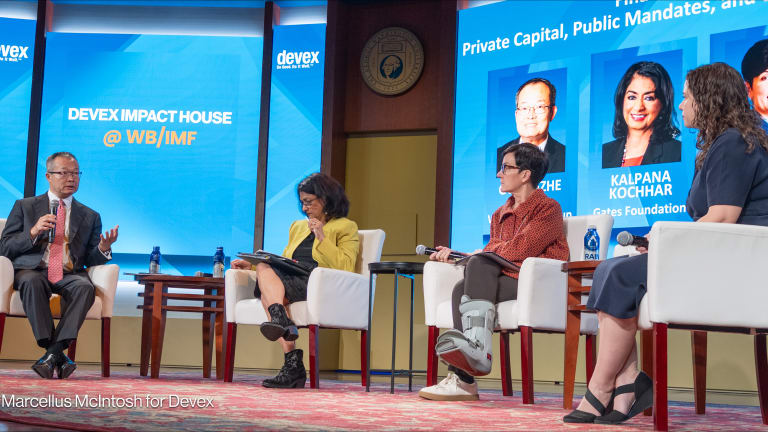Even as the 2015 deadline for achieving the Millennium Development Goals approaches, most developing countries are still striving to cut poverty and drift into higher income brackets. There is, however, one catch: No nation has ever achieved higher-income status without undergoing urbanization.
In commemoration of World Habitat Day, urban development and housing experts teamed up Oct. 7 for a panel discussion on the topic of urbanization and the future of U.S. aid.
Anna Tibaijuka, executive director of the United Nations Human Settlements Program or U.N.-Habitat, formed part of the powerhouse of panelists. She pointed out that urbanization and migration are irreversible since they are driven by two main forces: people's expectations and economic pressures.
"People move not because they are better off; they move because they expect to be better off," Tibaijuka explained.
Rapid urbanization and the incidence of urban slums are the results of these two forces. It is estimated that 1.1 billion people in developing countries are slum dwellers. This number is expected to double by 2030, but governments and stakeholders of the international community have yet to come up with a strategy to accommodate this change.
"The discussion shouldn't be whether to lend a hand, but how," said Neal Peirce, winner of U.N.-Habitat's 2009 Scroll of Honor Award.
In exploring some of the key challenges facing the urban development sector, the panelists highlighted the fact that urbanization has always been regarded as a "messy public sector-oriented topic," with cities being "crime and grime" congestion zones that were to be ignored.
Negative attitudes toward issues give rise to poor policy frameworks, which in turn reinforce the problems. Without a change in perceptions and political will, urban development policies are bound to fail.
"Why else would you have 13 people settling every hour in the city of Lagos [in Nigeria]?" said Abha Joshi-Ghani, head of the World Bank's urban team. "Because it offers them hope, it offers them life; it offers them opportunities, jobs and services, which don't exist in the rural areas."
Alongside access to jobs, urbanization could improve access to education, technology, health care, human rights and women's liberation.
According to Joshi-Ghani, research from an upcoming World Bank urban strategy report indicates that urbanization happens primarily in secondary and small cities in developing countries, and not in big mega cities.
With 70 percent of the world's gross domestic product coming from cities, the question of urbanization is strongly tied to that of growth and poverty reduction.
It is therefore important for governments to develop policies, institutions and other regulatory frameworks in order to harness the potential of their cities. Through knowledge transfer between cities in developing countries, there is a greater chance of success.
However, this does not mean that the U.S. has no mandate in assisting in the regulation of rapid urbanization. Interaction CEO Sam Worthington acknowledged that the challenge for securing U.S. foreign aid for urban development lies in convincing donor agencies that their dollars actually get on the ground.
With rising interest and participation from high-level officials in the current U.S. administration, the timing for doing this couldn't be better.








